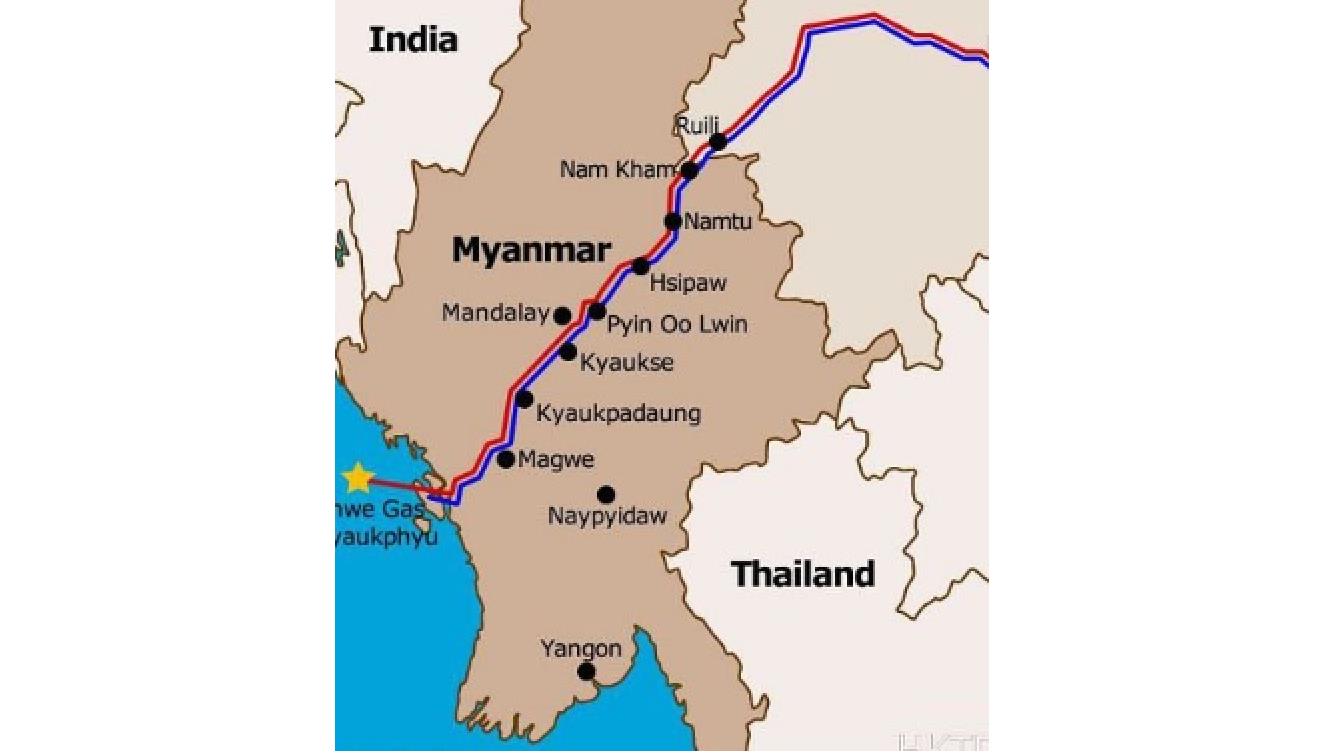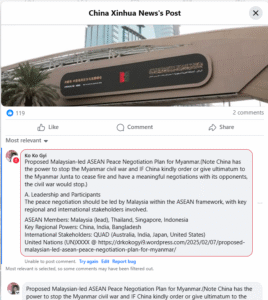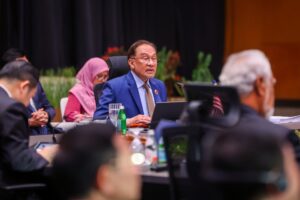Legal Memorandum: Examination of Economic Complicity in Myanmar’s Ethnic Violence
Subject: Assessment of China’s Potential Indirect Liability Through Economic Collaboration with Myanmar’s Military Authorities
Submitted by: [Name Withheld for Safety]
Date: [26th. May 2025]
To: International Legal Authorities and Human Rights Mechanisms (ICC, ICJ, UNHRC, OIC, ASEAN Observers)
Summary Overview:
This legal memorandum outlines a body of circumstantial evidence that supports calls for further investigation into the People’s Republic of China’s (PRC) indirect role in Myanmar’s systemic abuses against Muslim minorities. While there is no claim of direct orchestration of atrocities, this document details patterns suggesting that the PRC may have materially benefited from and indirectly supported displacement and dispossession campaigns — through the acquisition of land and execution of infrastructure projects that correlate with zones of ethnic cleansing.
The central objective of this submission is to promote accountability and to pressure state actors — specifically the PRC — to align their foreign economic engagements with international human rights norms.
I. Key Background Points
- Scope of Myanmar-China Agreements
- During U Thein Sein’s presidency, approximately 780 separate development and infrastructure deals were signed with China. Notable examples include the Myitsone Dam and Letpadaung Copper Mine.
- Public Resistance to Chinese Mega-Projects
- Civil society campaigns, notably via Facebook, led to mass mobilization against the Myitsone Dam, resulting in a government-imposed suspension of the project. This created apprehension among both Myanmar generals and Chinese investors about further disruptions.
- Diversion Through Nationalist and Religious Extremism
- In response to growing civil unrest, Myanmar’s military has repeatedly utilized nationalistic and religious rhetoric to consolidate support and deflect public dissatisfaction — a tactic aligning with historic uses of scapegoating minorities to protect elite interests.
- Alleged Strategic Influence
- Multiple sources allege that Chinese advisors, concerned about public scrutiny over their Belt and Road Initiative (BRI) investments — particularly the Kyaukpyu port and oil pipeline — may have encouraged diversion tactics. This reportedly included fostering disinformation and anti-Muslim sentiment to create internal instability that masked their economic advances.
- Advance Warning and NGO Observations
- Prior to the 2012 Rohingya crisis, international observers including journalist Bertil Lintner privately warned that orchestrated violence was imminent. Separate visits by Western humanitarian professionals further predicted targeted displacements near BRI-linked corridors.
- Land Transfers Following Ethnic Violence
- Land formerly belonging to Rohingya and Kaman Muslims in regions such as Kyaukpyu, Meiktila, and Lashio was reportedly expropriated and later transferred to PRC-related infrastructure projects. Analysts describe this as tantamount to the economic acquisition of ‘blood land.’
- Economic Displacement in Meiktila
- In Meiktila, local officials were reportedly linked to a scheme where valuable Muslim-owned urban land was earmarked for redevelopment by companies connected to military officials. Plans allegedly involved reallocating property post-violence to junta-linked developers.
II. Legal and Ethical Frameworks
- Complicity in Crimes Against Humanity (Rome Statute Articles 25, 30):
- Benefiting knowingly from the economic consequences of forced displacement could trigger scrutiny under ICC principles of aiding and abetting.
- Violation of Geneva Conventions:
- Acquiring or facilitating acquisition of property following forced civilian displacement may breach international humanitarian law related to civilian protection during armed conflict.
- Analogy to Criminal Receipt of Stolen Goods:
- While not strictly codified under international law, the practice of acquiring confiscated property post-violence mirrors principles applied domestically regarding trafficking in stolen property.
- State and Corporate Responsibility (UNGPs on Business and Human Rights):
- The Ruggie Principles impose a duty on states and corporations to avoid participation — even indirectly — in human rights violations. China’s failure to exercise due diligence in dealing with Myanmar’s junta raises serious questions of international responsibility.
III. Recommended Actions and Inquiries
- Evidence Collection: Launch international investigations into land ownership changes and transfer deeds in contested areas tied to Chinese investment.
- Legal Advocacy: Encourage the International Criminal Court to initiate a preliminary investigation into economic complicity tied to systemic abuses.
- Diplomatic Dialogue: Engage China diplomatically to advocate for its support of a nationwide ceasefire and inclusive peace agreement that upholds the rights of ethnic minorities.
- Public Accountability: Promote transparency by documenting links between land seizures and foreign infrastructure investments.
Conclusion:
This memorandum does not accuse the PRC of directing mass violence in Myanmar. Rather, it presents a case for their potential indirect complicity and urges action to align foreign investment with human rights accountability. Just as the international community responded to ‘blood diamonds’ in Africa, it must now consider the implications of ‘blood land’ acquired through complicity with authoritarian regimes.
By holding all actors accountable — including those who profit — we may advance justice for victims and support a peaceful, inclusive resolution to Myanmar’s long-standing crises.
Prepared by: [Redacted for Security]
Contact: [email protected]
For confidential use by legal and humanitarian advocacy bodies





